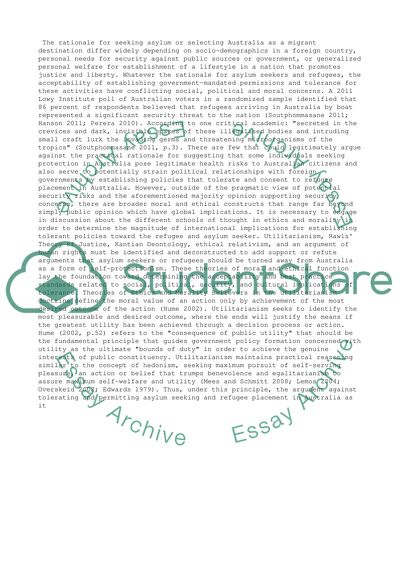Cite this document
(“A Practical Discussion of Australias Role in Ethical Policy Formation: Essay”, n.d.)
Retrieved from https://studentshare.org/management/1401042-a-practical-discussion-of-australias-role-in-ethical-policy-formation-the-debate-regarding-asylum-seekers-and-refugees
Retrieved from https://studentshare.org/management/1401042-a-practical-discussion-of-australias-role-in-ethical-policy-formation-the-debate-regarding-asylum-seekers-and-refugees
(A Practical Discussion of Australias Role in Ethical Policy Formation: Essay)
https://studentshare.org/management/1401042-a-practical-discussion-of-australias-role-in-ethical-policy-formation-the-debate-regarding-asylum-seekers-and-refugees.
https://studentshare.org/management/1401042-a-practical-discussion-of-australias-role-in-ethical-policy-formation-the-debate-regarding-asylum-seekers-and-refugees.
“A Practical Discussion of Australias Role in Ethical Policy Formation: Essay”, n.d. https://studentshare.org/management/1401042-a-practical-discussion-of-australias-role-in-ethical-policy-formation-the-debate-regarding-asylum-seekers-and-refugees.


